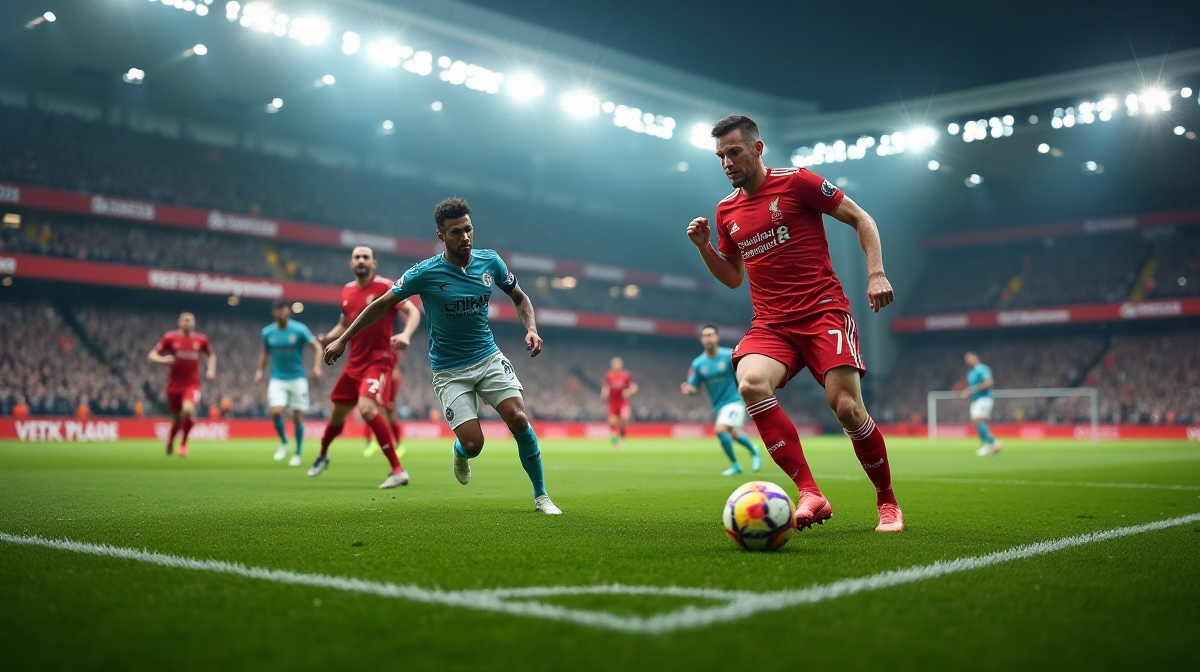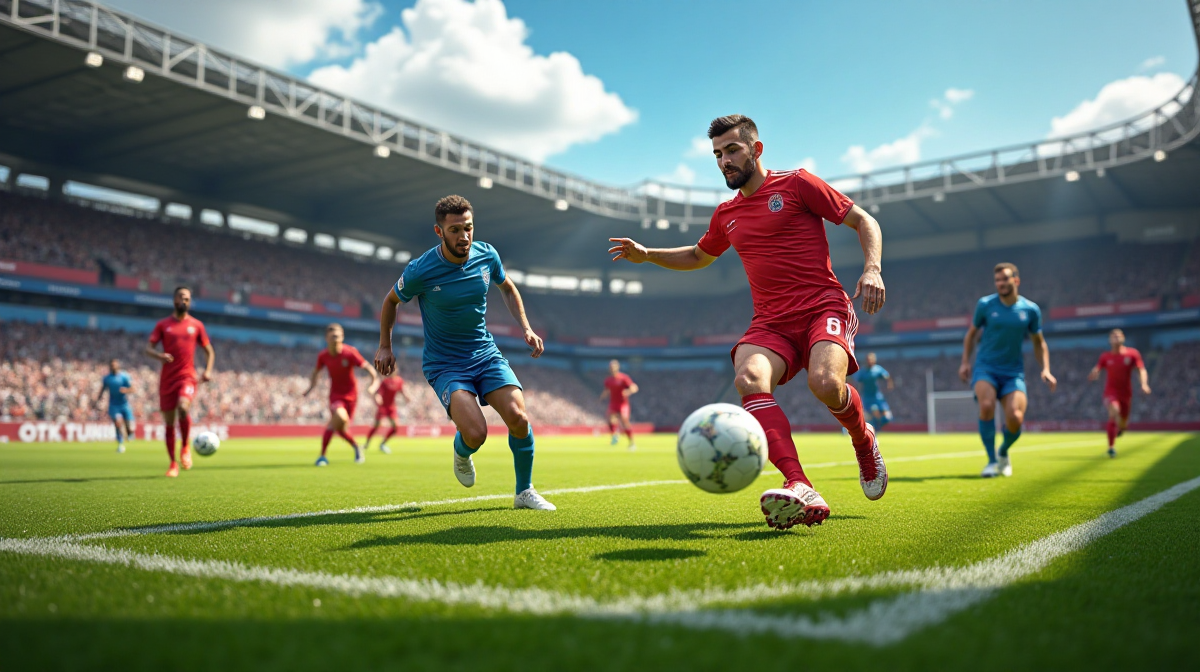Sporty & Fit: 5 Ways to Boost Your Performance
The Importance of Continuous Performance Improvement
In the pursuit of fitness and athletic achievement, stagnation is the enemy. Whether you’re a seasoned athlete or just beginning your journey, continuous improvement is paramount. It's not just about reaching a goal, but about establishing a lifestyle of growth and pushing your boundaries. A sporty lifestyle isn't solely defined by intense training; it's a holistic approach to well-being that encompasses physical, mental, and nutritional aspects.
Who This Guide Is For
This guide is designed for anyone looking to elevate their performance, regardless of their current fitness level. Whether you’re a weekend warrior, a dedicated gym-goer, or a competitive athlete, the principles outlined here can be adapted to suit your individual needs and goals. Even those curious about the world of sports betting and analysis – perhaps looking at resources like the sporty balance adder apk for insights – can benefit from understanding peak physical condition.
Overview of the 5 Performance Boosters
We'll explore five key areas – nutrition, strength training, recovery, cardiovascular fitness, and mental toughness – that, when optimized, will unlock your full potential. These aren't isolated components; they work synergistically to create a powerful engine for performance.
Optimize Your Nutrition for Peak Performance
Nutrition is the foundation of any successful performance plan. It fuels your workouts, aids in recovery, and supports overall health.
Macronutrient Balance: Protein, Carbs & Fats
The right balance of macronutrients is crucial. For active individuals, protein is essential for muscle repair and growth. Carbohydrates provide the primary energy source, while healthy fats support hormone production and nutrient absorption. Understanding what does under 4.5 means in sporty bet requires analytical skills, similar to analyzing your body’s macronutrient needs.
Timing Your Nutrition
What you eat when you eat matters. Pre-workout fuel should focus on easily digestible carbohydrates for energy. During prolonged exercise, consider simple sugars for sustained performance. Post-workout nutrition should prioritize protein and carbohydrates to replenish glycogen stores and initiate muscle recovery.
Hydration Strategies
Dehydration can significantly impair performance. Water is vital, but electrolytes lost through sweat need replenishment. Consider electrolyte-rich drinks or foods, especially during intense or prolonged activity.
Supplementation
Supplements can play a supportive role, but they should never replace a well-rounded diet. Creatine can enhance strength and power, while beta-alanine may improve muscular endurance. Always research thoroughly and consult with a healthcare professional before starting any supplement regimen.
Implement a Strategic Strength Training Program
Strength training isn't just about building bigger muscles; it's about enhancing overall strength, power, and resilience.
Compound vs. Isolation Exercises
Compound exercises, like squats, deadlifts, and bench presses, engage multiple muscle groups simultaneously, offering a greater performance benefit. Isolation exercises target specific muscles and can be useful for addressing weaknesses.
Progressive Overload
The key to continuous gains is progressive overload – gradually increasing the demands placed on your muscles. This can be achieved by increasing weight, reps, sets, or reducing rest time.
Periodization
Varying your training intensity and volume over time, known as periodization, can prevent plateaus and optimize results. Incorporate deloading weeks to allow for recovery and prevent overtraining.
Exercise Form & Injury Prevention
Prioritize proper form over lifting heavy weight. Incorrect form can lead to injuries that derail your progress. A sporty approach includes respecting your body’s limits.
Prioritize Recovery & Rest
Recovery is often underestimated, but it's just as important as training.
The Science of Muscle Recovery
Muscle damage occurs during exercise. Recovery allows your muscles to repair and rebuild, becoming stronger in the process. Understanding Delayed Onset Muscle Soreness (DOMS) can help you manage expectations and adjust your training accordingly.
Active Recovery Techniques
Low-intensity activities like walking, swimming, or yoga can promote blood flow and reduce muscle soreness.
Sleep Optimization
Sleep is when the majority of muscle repair and recovery occurs. Aim for 7-9 hours of quality sleep per night.
Stress Management Techniques
Chronic stress can hinder recovery and impair performance. Practice mindfulness, meditation, or other stress-reducing techniques. Following the under 21 premier league table can be a relaxing pastime for some, offering a distraction from daily stressors.

Enhance Your Cardiovascular Fitness
Cardiovascular fitness is essential for endurance, stamina, and overall health.
Different Cardio Methods
HIIT (High-Intensity Interval Training) is efficient for improving cardiovascular fitness and burning calories. LISS (Low-Intensity Steady State) cardio is good for building endurance and recovery. Zone training involves maintaining a specific heart rate for sustained periods.
Interval Training
Alternating between high-intensity bursts and recovery periods maximizes efficiency and results.
Monitoring Heart Rate & Performance Metrics
Tracking your heart rate and other performance metrics can help you gauge your progress and adjust your training accordingly. Staying up-to-date with the live match now premier league schedule can motivate you to incorporate more cardio into your routine.
Incorporating Cardio into Your Existing Routine
Find ways to integrate cardio into your lifestyle. Walk or bike to work, take the stairs instead of the elevator, or add a short cardio session to your strength training routine.
Master Mind-Muscle Connection & Mental Toughness
Physical performance is heavily influenced by mental state.
Visualization Techniques
Mentally rehearsing your workouts or competitions can improve performance and confidence.
Goal Setting
Set SMART goals – Specific, Measurable, Achievable, Relevant, and Time-bound – and track your progress.
Building Mental Resilience
Overcoming plateaus and challenges requires mental toughness. Embrace setbacks as learning opportunities and maintain a positive mindset.
Mindfulness & Focus During Workouts
Being present and focused during your workouts enhances the mind-muscle connection and improves performance.

Recap of the 5 Performance Boosters
We’ve covered five critical areas: nutrition, strength training, recovery, cardiovascular fitness, and mental toughness. Each plays a vital role in unlocking your potential.
Encouragement to Start Implementing Changes
Don't try to overhaul everything at once. Start with small, manageable changes and gradually build from there. A sporty lifestyle is a journey, not a destination.
Next Steps for Continued Improvement
Continue to learn, experiment, and adapt your approach. Seek guidance from qualified professionals, and remember to listen to your body. The journey to peak performance is ongoing.

